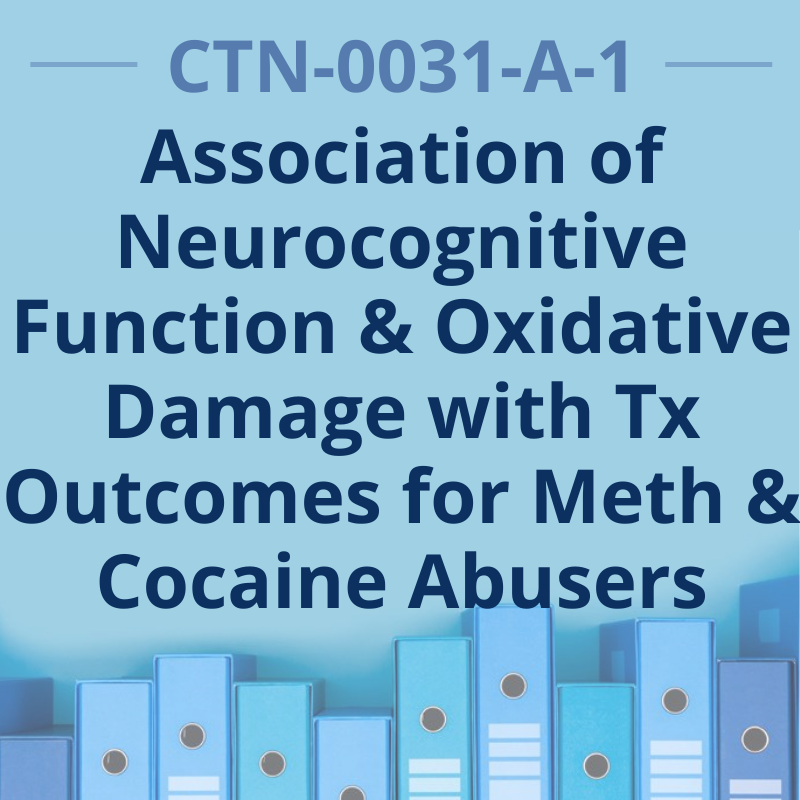CTN-0031-A-1: An Evaluation of Neurocognitive Function, Oxidative Damage, and Their Association with Treatment Outcomes in Methamphetamine and Cocaine Abusers

T. John Winhusen, Ph.D.
Eugene Somoza, M.D.
Lead Investigators
University of Cincinnati
Addiction Sciences Division
winhust@ucmail.uc.edu
somoza@uc.edu
The primary objective of this study is to replicate the finding that performance on the Stroop color-word interference task is predictive of treatment completion in participants with cocaine use disorders and to extend this finding to participants with METH use disorders. Secondary objectives include evaluating whether: 1.) performance on various neurocognitive tests, including the Stroop, Rey Auditory-Verbal Learning Test (RAVLT), Iowa Gambling Task (GT), Wisconsin Card Sorting Task (WCST), and the Barratt Impulsiveness Scale version -11 (BIS-11) is predictive of treatment attrition and stimulant use outcomes in METH/cocaine abusers; 2.) neurocognitive test performance is associated with oxidative damage, a severe consequence of oxidative stress, in METH/cocaine abusers; 3.) oxidative damage, as assessed by two plasma measures, is predictive of treatment attrition and substance use outcomes in METH/cocaine abusers, and 4.) oxidative damage in METH/cocaine abusers is significantly greater than that of a normal comparison group.
Primary Findings
Methamphetamine-dependent and cocaine-dependent patients may have different impulsivity profiles but the BIS-11 may be useful in identifying both methamphetamine-dependent and cocaine-dependent patients who are at risk for treatment non-completion.

Results Article: Winhusen et al. Impulsivity is Associated with Treatment Non-Completion in Cocaine- and Methamphetamine-Dependent Patients but Differs in Nature as a Function of Stimulant-Dependence Diagnosis. Journal of Substance Abuse Treatment 2013;44(5):541-547. [get article]
Related Studies
- CTN-0031: Stimulant Abusers Group to Engage in 12-Step (STAGE-12)
- CTN-0031-A-2: The Role of Alcohol Consumption in Classifications of Alcohol Use Disorders: A Clinical Study
- CTN-0031-A-3: Organizational and Practitioner Influences on Implementation of STAGE-12
Related Resources
- CTN-0031-A-1 Study Protocol
- Publications in the Library about CTN-0031-A-1
- Study data from NIDA Data Share
Node Involvement
Lead Node(s):
All Participating Nodes: